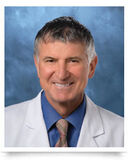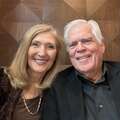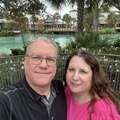“Did You Exercise Before Heart Valve Surgery?” Asks Leticia
By Adam Pick on August 10, 2009
I just received a great question from Leticia about exercise prior to heart valve surgery.

Leticia writes, “Hi Adam, I have been diagnosed with a bi-cuspid aortic heart valve. I have no symptoms or shortness of breath. My cardiologist hopes I can go for another 10 years without surgery. I’m concerned about my hobbies, which are aerobics and I teach ballet. I love my exercise and my doctor states that I don’t have to change my lifestyle unless I’m feeling symptoms. I’ve just read stories about athletic people having to reduce activity until after surgery. I don’t want to pass out one day and seriously injure or kill myself. Do you have any other info on exercise and bi-cuspid aortic heart valve? Thank you, Leticia”
As Leticia alludes, valvular disorders can negatively impact heart function during exercise for patients prior to heart valve surgery.
In fact, I just posted a patient story about Randy, from Wisconsin, who fainted while bike riding due to a bicuspid aortic valve. (Thankfully, everything worked out okay for Randy.)
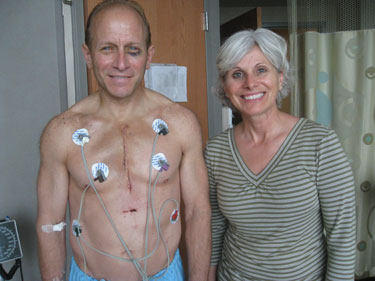
Randy – Fainted During Bike Riding
At the same time, other patients – under medical supervision – engage in exercise to enhance their physical condition prior to heart valve surgery. For example, Sylvia Woolworth lost 35 pounds leading up to her heart valve replacement.
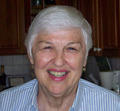
Sylvia – Lost 35 Pounds
As for me, my cardiologist restricted all exercise when it was determined that I needed an aortic valve replacement. However, I was diagnosed with severe aortic stenosis, severe regurgitation and a dilated heart. Like Leticia, I was born with a congenital bicuspid aortic valve.
Specific to Leticia’s situation, I do not know the specific details of her valve disease progression (e.g. mild, moderate, or severe). That said, I would suggest that Leticia contact her cardiologist to better understand the severity of the disorder and its impact upon her exercise routine, if any.
One last note… I would also suggest to Leticia that symptom manifestation may not be the best, definitive indicator for timing heart valve surgery. So you know, I was asymptomatic but my heart was already enlarged. That said, I think all patients should be actively monitored on a yearly basis following initial diagnosis.
I hope that helps explain a little more about exercise before heart valve replacement surgery!
Keep on tickin!
Adam
|
jerry says on August 10th, 2009 at 6:38 pm |
|
I certainly wouldn’t wait 10 years for heart surgery without exercising! If your doctor tells you not to exercise now, then I would ask, why not have surgery now? I exercised for 20 years up until my cardiologists told me I needed surgery now. Still, it was 3 months between now and surgery and I was mostly asymptomatic. I didn’t exercise for that period of time. I started exercising again about 9 weeks after surgery when I started cardiac rehab. |
 |
|
Rhena Smith says on August 11th, 2009 at 12:08 pm |
|
Since your cardiologist has given you the green light and any intervention cuold be as far away as 10 years away – then exercise away. It is an excellent way to deal with stress and keep physically fit for whent he time comes. That will aid in your recovery. I exercised regularly for the last 10 years as I was doing annual checkup with cardiologist. Just recently though my checkup revealed my stenosis has progressed to borderline severe. I have been told to now that I am not get my heart rate higher than 100 bpm. Doesn’t keep me from getting brisk walks int hough. We are watching month to month know as I try to get some pounds off. While my exercising did help me stay fit, I am still overweight. Trying to eat heart healthy and taking it day by day. Motivation to lose weight has changed drastically now as you might expect. Now its not so much to get into my favorite pair of shorts, but to get my heart fixed with the least risk and best recovery possible. Best of Luck to you. My advice at your stage of the game would be to live your life as normal and try not to think about the future too much. Keep those checkups regular and if you do notice anything out of the ordinary, then don’t hesitate to mention it to your Dr. whether you think it might be silly or not. Rhena S. |
 |
|
Doug says on August 11th, 2009 at 1:16 pm |
|
The only thing that the doc restricted for me was heavy weight lifting. I exercised up until the day before my heart surgery. Your cardiologist should give you that guidance based upon your tests and how you are progressing over time. My heart dilation was the trigger for my surgery, so ahead of that, they monitored the size of my heart for years. They should watch you the same. But, until they restrict you, exercise away! Your body will help you determine when enough is enough. |
 |
|
Phyllis Cooke says on August 11th, 2009 at 1:24 pm |
|
Hi, Adam, I had a very successful aortic valve replacement three weeks ago today!! I also had one bypass. I am doing well. I exercised (walked) up to the day of surgery. I race walked two years ago until my cardiologist told me I could experience “sudden death” by pushing my heart so hard. My bicuspid valve was discovered nine years ago during a routine physical. I have been monitored every six months since then with an echocardiogram. I became symptomatic early this year. Shortness of breath and fatigue were my main symptoms. I am now walking three times a day (in 20-30 minute increments). I am on a heart monitor for 30 days because of concerns over heart pacing, but the EKG my cardiologist took last week was perfect!!! Keep on tickin’ Phyllis Cooke |
 |
|
Neil Kortie says on August 11th, 2009 at 1:27 pm |
|
Hi Leticia, You should be able to exercise as much as you like as long as you are getting regular check ups. I was unaware that I even had a bi-cuspid aortic valve until it failed due to calcium build up. After a nice bike ride my heart began pumping really hard for an hour or so, for the next week my shoulders were tight and I had short breath. My wife made me go to the doctor where I was told I needed my valve replaced immediately. After surgery I was told that I had the worse valve the surgeon had ever seen. So exercise away and stay in shape, it will be easier on your heart in the long run. |
 |
|
Duane Schlosser says on August 11th, 2009 at 1:37 pm |
|
I am currently 36 days until my Ross Procedure. I have up to this past weekend been cycling with my riding group up to 36-40 miles on Sundays. I’ve been under strict orders to keep my heart rate within a specific range and not go above it for fear of passing out. Though these orders have been hard to follow in the heat of a sprint or a fast pace line. But most recently, after my rides, I have found myself completely exhausted. This is followed by most of the day sleeping, and my recovery would come from sleep. I now have stopped my weekly rides and have found that even pushing the lawn mower is too much for me. Exercise within your means. Know your limits and acknowledge the signals your body is sending you. I look forward to getting back to training after surgery. I hope this helps. |
 |
|
Wilma de Boer says on August 11th, 2009 at 2:00 pm |
|
re: Leticia and her cardiologist telling her not to limit her exercise I just had aortic valve replacement (July 24) and was told by my cardiologist that since I had no symptoms I could wait. My surgeon certainly said otherwise! He operated on me within three weeks as I had severe stenosis and my valve no longer even moved. He was greatly concerned and even though my cardiologist said I could wait until symptoms appeared – she still made me stop exercising immediately. If I were Leticia, I would get a second and third opinion. My surgeon told me that some people never develop symptoms – they simply die. |
 |
|
Sherri Hendry says on August 11th, 2009 at 2:03 pm |
|
I was diagnosed a couple of years ago w/ Bicuspid Aortic Valve and Mitral Valve prolapse- on January 7, 2009 I had the Mitral Valve repair due to severe regurgitation. I was told in November of 2008 that I had slight enlargement of the Aortic valve that may or may not need surgery – I’m on watch and wait status for that, however I have not been told to stop. I exercised before the surgery amd up to the day before the surgery and 4 1/2 weeks after I started rehab and still go 3-5 days a week to work out. A week after my surgery they told me to start walking. So I think a lot depends of how you feel and what your cardiologist recommends. If you are going to routine check ups w/ him. and you feel fine then go for it. But listen to your body. I wish you the best of luck. |
 |
|
Dale says on August 11th, 2009 at 2:37 pm |
|
I had my first valve implant in 1971. That valve was replaced, and an aneurysm repaired in June 19, 2009. Since about 1976 I either ran three miles or rowed six days a week. I continued to row until I learned that I needed to have the aneurysm repaired and valve replaced in March, 2009. After the surgeon recommended I stop rowing, I walked a brisk three miles on the treadmill until 4 days before the surgery. I believe that this really aided my recuperation. I was walking about 6 miles a day (1.5 x 4) three to four weeks after the surgery. Unfortunately, my recovery was interupted because I developed a lymphocele in the area where I was connected to the heart lung machine which curtailed my walking. So overall I would recommend as much activity as your doctor would allow. That is the key, do what your doctor recommends. I recall when I first learned that I was developing an aneurysm eight years ago the surgeon told me that it was good to stay in shape. He went on to say that it always makes it easier on him. I was already a gym rat, but I definately wanted it to be as easy as possible for him!!! Dale |
 |
|
Randy Heimerl says on August 11th, 2009 at 4:59 pm |
|
Leticia, |
 |
|
lislepammysue says on August 11th, 2009 at 5:40 pm |
|
That what gets me angry, also. The best time to have surgery is the day before something bad happens. DUH! Guess I’ll wait until I faint. Severe aortic stenosis, bicuspid aortic valve. Exercise 5/week ( 5 hours – aerobic, 1.5 hrs.–weights. ) Treadmill stress test –12min, 4.2 mph/16 % grade) I’m just trying to get my life in order in case something happens. |
 |
|
Lisa says on August 11th, 2009 at 6:01 pm |
|
Also, keep in mind that “10 years” away is only an estimate. I was told a few years ago that I would probably need surgical intervention on my mitral valve prolapse when I was in my 50’s, I am now recovering from my surgery which was done at age 35. I did go snowboarding the week prior to my surgery as I too had been asymptomatic. My left ventricle was enlarging and I had severe regurgitation. Continue seeing your cardiologist regularly, just because you do not have symptoms does not mean your heart is well, do not wait for symptoms. |
 |
|
Kerrigan says on August 11th, 2009 at 6:26 pm |
|
Had a bicuspid aortic valve, which got severe stenosis. Blood pressure was fine, no symptoms. Opted for the replacement on a second opinion instead of waiting for symptoms (like a heart attack I guess ….). |
 |
|
Richard Holoubek says on August 11th, 2009 at 8:16 pm |
|
Hi… My Cardiologist flat out told me that he did not want me running or lifting heavy things. He told me my condition was mild-moderate.. not even severe. As I was very active , cardio wise, I gave all that up until after surgery.. about 5 years. Now, I’m back to my aggressive walking regimen. 3.5 miles in 40 minutes. I feel great about being able to get back into it! |
 |
|
Bill Gentile says on August 11th, 2009 at 9:19 pm |
|
Leticia, the above posts and Adam’s write-up are dead-on. I, too, have a bicuspid aortic valve that will need replacement “sooner rather than later”, most likely due to an ascending aortic aneurysm that will eventually hit the 5cm limit. For the two years since my diagnosis, I’ve worked as a ski and mtn bike patroller, weightlift, play softball, and trail run. I know my time will come, and I try not to push too much, but so far the doctors have appreciated the exercise and have noted no growth in the aneurysm. Keep up with your echocardiograms, check-ups, do some research and get a second opinion if you are concerned about what your cardiologist is telling you. And keep exercising and enjoying what you do. |
 |
|
Jerome Stark says on August 12th, 2009 at 3:24 am |
|
50% of people with a Bi-cuspid valve have no problems the rest of their lives. It is important to have it monitored on a regular basis to see if anything is happening. This is usually done thru an echo-cardiogram. Be sure they check the aorta as there is a link between bi-cuspid aortic valve and aortic aneurysms. Unless there is some valve issues going on, or an enlarging aorta, there should be no restrictions on exercise. |
 |
|
fred klauber says on August 12th, 2009 at 6:19 am |
|
Hi Leticia, I have a bicuspid aortic valve and will be having it replaced next week. I’ve known about the valve for about 10 years. During that time, I’ve done long distance bike rides (100+ miles), triathlons and marathons. As long as you monitor the situation and have your Dr’s blessing, ‘rock on!!!’ FK |
 |
|
Lora Dennison says on August 16th, 2009 at 4:40 pm |
|
Adam – I had a mitral valve replaced with that of a pig. My question is this considered an organ transplant? Thanks for all the nice articles you have put on the internet. I bought your book and enjoyed it very much. |
 |






